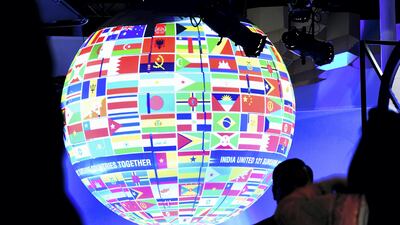Last week, the 2017 UN Climate Change Conference, otherwise known as Cop23, opened its doors to an international audience determined to tackle the impending challenges of climate change.
Marking two years since the adoption of the Paris accords, the conference continues to fuel momentum to meet the internationally-agreed temperature goal and support the wider objectives of the 2030 agenda for sustainable development.
On one hand, this is remarkable, of course. On the other hand, we tend to forget an important, but defining, factor.
Content and rhetoric of the conference feeds into conventional thinking that governments, business and non-governmental organisations are the only door keepers to the protection of the environment and the development of a greener economy.
This is no fallacy, but misses an important point, which is the relevance of engaging youth in the dialogue and raising general awareness. The effort needed to ensure a sustainable future is much more than just policy-making.
No other generation has ever been more environmentally aware than the youth of today. That said, the very same generation are responsible for generating more waste, consuming more water, and using more natural resources than we have ever seen before.
A recent study conducted by Dr Abdelgadir Abuelgasim and Dr Salma Daiban of UAEU's College of Humanities and Social Sciences, which surveyed more than 4,000 participants, found that 49 per cent of residents are in fact unware of climate change, whilst 40 per cent of residence believed that humans are not responsible for the causes of climate change.
_____________________
Read more from Opinion
Theresa May's British government strides closer to the edge
As Commemoration Day approaches, the sense of loss feels closer to home
_____________________
Paradoxically, sustainability has a long-standing history in the UAE.
Stressing the importance of sustainability during a speech in 1998, Sheikh Zayed, the Founding Father of the UAE, said, "We cherish our environment because it is an integral part of our country, our history and our heritage. On land and in the sea, our forefathers lived and survived in this environment. They were able to do so only because they recognised the need to conserve it, to take from it only what they needed to live, and to preserve it for succeeding generations.”
Sheikh Zayed’s thinking has paved the way for the UAE to become one of the most innovative, forward-looking and collaborative countries in the world among others in the areas of sustainability and the development of a green economy.
Not only has the UAE ratified the Paris agreement as the first country in the region, but it has introduced ambitious government initiatives and policies such as the Dubai Plan 2021, Dubai Industrial Strategy 2030 and the Dubai Clean Energy Strategy 2050. Dubai is also in the process of constructing one of the world's largest renewable energy projects with the Mohammed bin Rashid Al Maktoum Solar Park; and it has pushed down solar PV prices to an all-time low, making the technology more viable than ever before.
And while we are extremely blessed with our visionary leadership, we need to start taking ownership for a more sustainable future, starting at home.
Young people need to be taught that water is a precious commodity in our region and only available because we have the ability and technologies to desalinate water, which is an energy-intensive process in itself. We need to educate young people that if we fail to recycle our waste might end up in the open sea and what are the looming consequences for marine life.
Only a change in mindset and lifestyle can help us move towards a truly sustainable future and a green economy for which the government already provides us with the framework.
As a business community, part of our focus is to help bridge the gap between government, businesses and academia, and to support young people in their career development. We are proud to host regular events and build strategic partnerships that help us to raise awareness of key sectors which will support the long-term economic diversification and sustainability of the UAE, particularly that of energy and the environment.
On a personal level, as both a businessman and a father, I believe that the public and private sectors can, and should, provide solutions that help secure a sustainable future for us all. Perhaps more importantly, we all need to take personal responsibility for our attitudes and behaviours when it comes to helping preserve our planet, setting an important example to young people and our future generations.
Marwan Abdulaziz Janahi is the executive director of Dubai Science Park and the chairing member of the Pharmaceuticals and Medical Equipment Taskforce of the Dubai Industrial Strategy 2030

